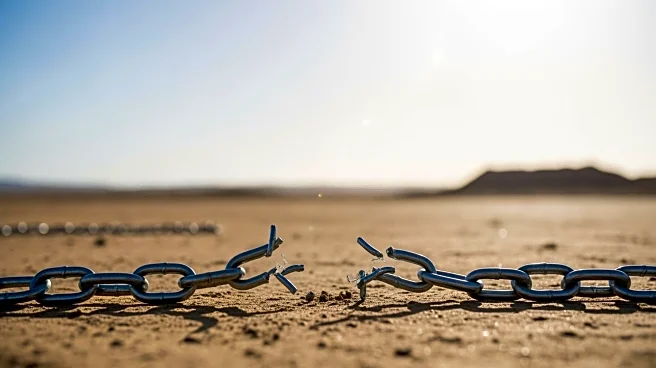What's Happening?
Israel has announced that Hamas handed over two coffins containing the remains of deceased hostages from Gaza. This development is part of a ceasefire agreement aimed at ending a two-year conflict. Prime
Minister Benjamin Netanyahu has urged Hamas to expedite the process of returning the remaining hostages' bodies. Currently, 12 out of 28 deceased hostages have been returned. The Rafah border crossing, a critical point for movement between Gaza and Egypt, remains closed, with Israel linking its reopening to the completion of the handover process. Hamas has criticized this decision, labeling it a breach of the ceasefire terms. The closure of the Rafah crossing, which has been in place since May 2024, has significant implications for Gazans seeking medical treatment or wishing to travel to Egypt.
Why It's Important?
The ongoing situation highlights the fragile nature of the ceasefire between Israel and Hamas. The handover of hostages' remains is a sensitive issue that affects the broader peace process. The closure of the Rafah crossing impacts humanitarian efforts and the daily lives of Gazans, who rely on the crossing for essential services and family connections. The tension over the crossing's status underscores the challenges in achieving lasting peace and stability in the region. The international community is closely monitoring these developments, as they have implications for regional security and humanitarian conditions.
What's Next?
Negotiations are expected to continue, with both sides under pressure to adhere to the ceasefire terms. The reopening of the Rafah crossing is a critical point of contention that will likely require diplomatic intervention. The international community, including Egypt, which plays a mediating role, may need to step up efforts to ensure compliance with the ceasefire and facilitate the handover process. The situation remains volatile, with potential for further escalation if agreements are not honored.









